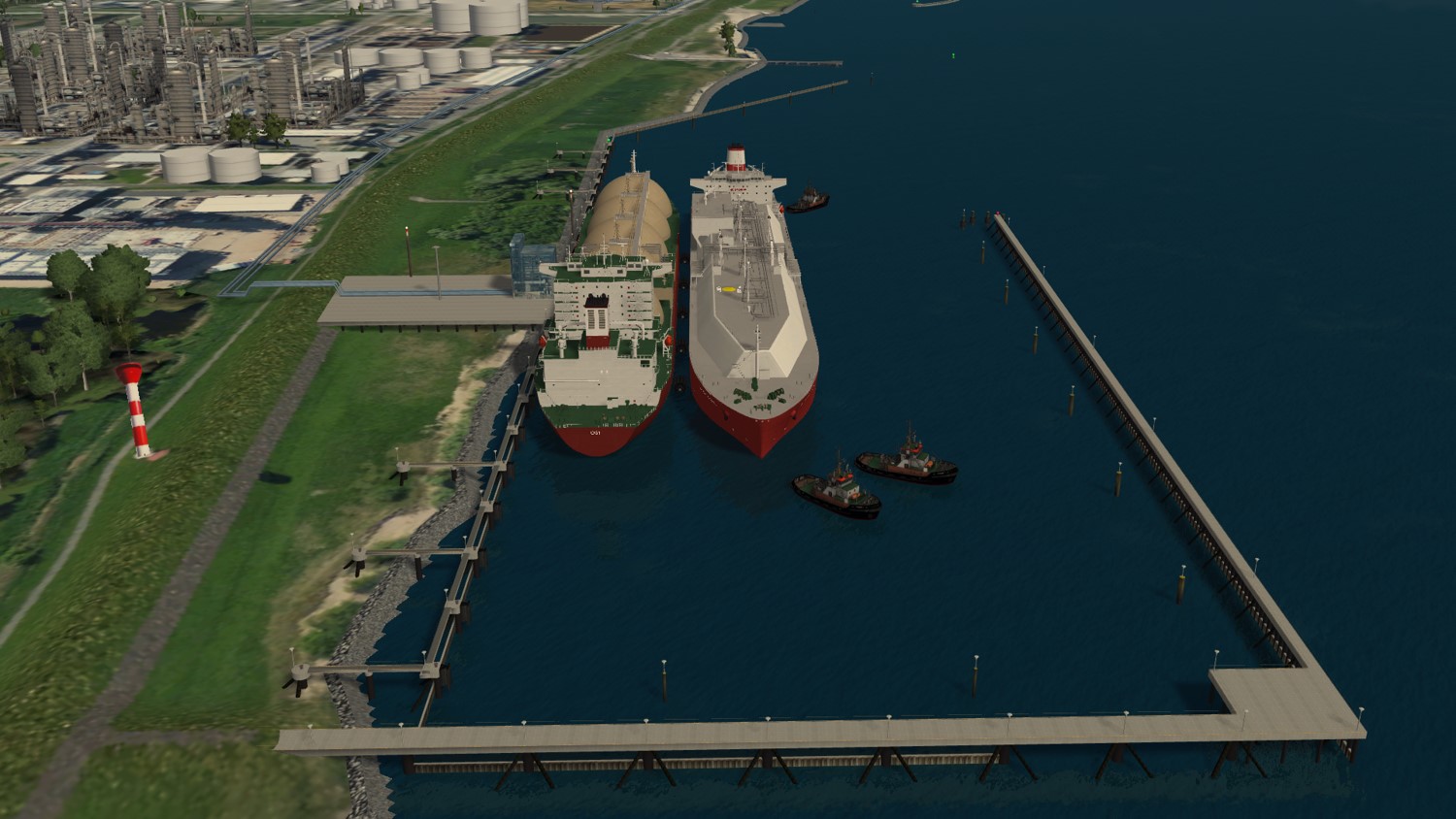Germany’s Hanseatic Energy Hub, the developer of the Stade onshore LNG import terminal near Hamburg, expects construction work to start soon on a jetty that would accommodate one of the chartered FSRUs in 2023.
The Lower Saxony State Agency for Water Management, Coastal Protection and Nature Conservation (NLWKN) has approved an early start to the preparatory measures for construction of the energy port in Stade, according to a statement by HEH issued on Monday.
Prior to this, the federal government and the state of Lower Saxony each pledged 100 million euros ($96.6 million) to finance the energy port in Stade.
HEH said works include the construction of dike crossings and sheet pile walls, as well as the construction of a loading platform.
The port company Niedersachsen Ports (NPorts) is in charge of the jetty project, it said.
Originally planned for 2026, the early construction of the energy port creates the prerequisite for one of the five FSRUs chartered by the German federal government to dock in Stade and feed gas into the German grid as early as the end of 2023, HEH said.
Germany currently does not have LNG import terminals. The country is moving quickly with its plans to build infrastructure and become a major LNG importer, and has chartered five FSRUs.
These vessels include the two units RWE chartered from Hoegh LNG, the Dynagas-owned 174,000-cbm Transgas Force and Transgas Power that will go on charter to Uniper, and Excelerate’s FSRU chartered by Engie, TES, and E.ON.
Uniper and RWE plan to launch Wilhelmshaven and Brunsbuettel FSRU-based terminals by the end of this year, while Stade and Lubmin and facilities and the second Wilhelmshaven terminal are expected to go online in 2023.
Stade onshore terminal to start ops in 2026
From 2026, the new energy port in Stade would serve as a landing point for HEH’s onshore LNG import facility, the firm said.
HEH’s LNG import facility will have a capacity of 13.3 billion cubic meters.
In June, the consortium consisting of Fluxys, Dow, Partners Group, and Buss Group, launched a binding open season for the facility.
“Following the conclusion of the binding open season with binding booking requests, individual marketing of the capacities is currently underway for the hub,” HEH said in the statement.
Recently, the EU Commission also confirmed the exemption from regulation for the terminal.
“The construction of the energy port creates an important infrastructure for today and tomorrow. With the FSRU, we can make an important contribution to security of supply in Stade in the short term,” Johann Killinger, managing director and co-shareholder of HEH, said in the statement.
“With the onshore terminal, we are building a future-flexible bridge for the transition from gas to hydrogen-based energy sources,” Killinger added.

